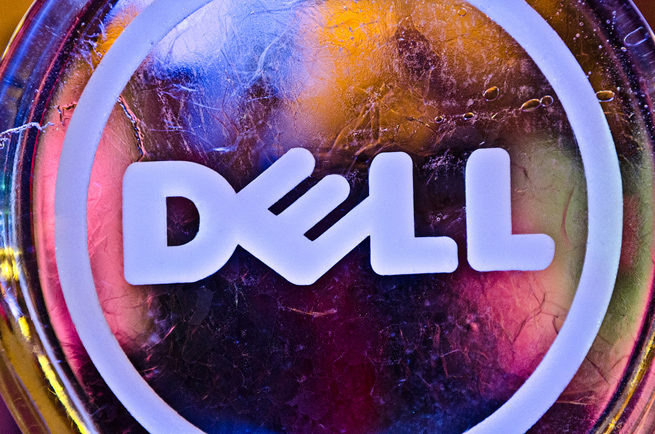Dell’s shareholders postponed a vote today on founder Michael Dell’s plans to take the company private.
For the time being, the fate of one of world’s largest computer makers remains uncertain. Discussions between Dell executives, shareholders, and the board continue to drag, with no end in sight.
“If an agreement isn’t reached early this quarter — I don’t believe it will happen for another quarter,” said business software analyst Joshua Greenbaum, who has followed Dell’s prospects for over a decade.
Shareholders announced that they would reach a decision on July 24, but it’s possible they’ll need yet more time — perhaps mid-August, when a proxy fight could erupt at the annual meeting.
If you’ve haven’t kept up with the tech world’s version of a Spanish telenovela, here’s a quick recap. Publicly traded Dell announced in February that it intended to take itself private by selling itself to a buyout consortium led by CEO Michael Dell and private equity firm Silver Lake partners. Microsoft would be taking a minority stake.
Five months later, some of the largest shareholders are still not convinced they should accept the offer and are holding off for a sweeter deal. They are still grousing that it significantly undervalues Dell.
Part of this confusion stems from Carl Icahn, who critiqued the proposed terms ($13.65 per share, or $24.4 billion) and put forward a counteroffer. This week, the outspoken billionaire blasted Dell’s board on CNBC, claiming that it is “dysfunctional” and he’s “never seen a board as bad as Dell’s.”
Icahn’s alternative proposal would keep a portion of the company public and buy shares back at $14 per share. The offer is conditioned on replacing the current board with Icahn and 11 others who work for him and his investment partner, Southeastern Asset Management.
But a special committee on Dell’s board recently voted to reject Icahn’s offer.
Icahn and his partners own a 13 percent stake in Dell; founder Michael Dell owns 16 percent. Both believe they are in a position to take control of the board and turn the company’s fortunes around.
It’s a lot of drama surrounding a company that was once the leader in the personal computing market, but has failed to ride the mobile computing wave, or adapt in the face of a declining demand for PCs.
Indeed, reaching an agreement to take the company private is just the first hurdle for Dell. Its product woes are of greater concern than the internal machinations between the board and various stakeholders.
‘These marquee brands don’t go quietly’
The Round Rock, Texas-based Dell was once the PC market leader, but it now trails Hewlett Packard and Lenovo. Going private would give it the space to remake itself as a provider of business technology, including software as well as hardware.
“Dell has been thinking about this transition to software for a while,” said Dave Kloba, a general manager for Dell Software who joined the company by way of acquisition. His company Kase was scooped up by Dell in 2010.
In an interview with VentureBeat, Kloba admitted that even a few years ago, his team met with the sounds of “crickets” when he broached the topic of software at Dell. Now many executives feel that software is the future, especially given that global PC sales are in decline.
The software camp is in charge, but it will take time for Dell to establish itself as a software company. Dell lacks clear messaging, and it’s currently dealing with a melting pot of products it acquired over the years.
As a private company, Dell has a better shot at staying relevant. Guarded from the scrutiny of press and investors, the board can make sweeping hiring and firing decisions, experiment with products, and implement new business models.
If revenues were to fluctuate for the next few years as a result of the experiments, it could have adverse effects on a public company, throwing the markets into a panic. But as a private company, such fluctuations would be hidden from view, giving management more room to make bold changes.
But for now, Dell is in a classic “Catch 22” bind.
It’s tricky to place a value on a company that is in transition — hence the struggle between the shareholders and board to reach any kind of agreement. But Dell can’t shift its focus to software and realize its potential until it goes private — which requires everyone to agree on its value.
“It’s hard to evaluate a company in a market that is declining and in such transition,” said Greenbaum, the founder of the Berkeley-based firm EA Consult. Greenbaum drew a comparison to Dell rival Hewlett Packard, a company that has struggled to replace its core business while remaining a public company.
“There is a lot of muscle memory in the market for past glory that makes it difficult for investors to accept a vastly changed business,” he said. “These marquee brands don’t go quietly.”
Breaking free of older bonds
An overlooked challenge for Dell? Cutting ties with other legacy vendors, which are also struggling to meet the demands of the “post-PC era.” Various sales agreements were eked out decades ago when Microsoft, HP, Dell and the rest were in their heyday.
Back then, these partnerships proved highly lucrative and locked in companies to a small group of vendors.
Today, they’ll all struggling to stay afloat on a sinking ship.

